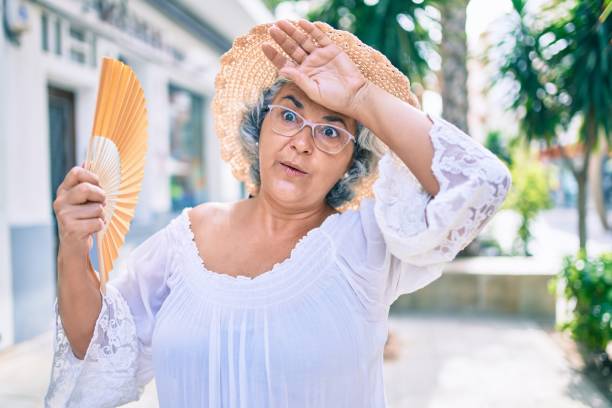Hot Weather Safety For Older Adults
Summer is a fun, active time for people who enjoy outdoor activities. For people aged 60 and older, summer can also be a time of the year when their well-being is at greater risk because they are more prone to heat related illnesses. Extreme or prolonged hot weather can be dangerous to older adults because their bodies cannot adjust to temperature changes as easily as younger people and the health risks are real. It is estimated that about 12,000 heat related deaths occur yearly with over 80 percent involving the senior population.
The good news is that most of the hospitalizations and deaths attributed to hot weather are preventable. Understanding how excessive high temperatures affect body functions and what symptoms to be on the alert for is a key to preventing heat related illnesses.
Why Summer Heat Is More Dangerous for Seniors
As you age, your body becomes less tolerant of temperature changes. Aging diminishes the ability of your body’s built-in mechanisms to regulate temperature which is why older adults are more sensitive to cold and heat. Many older adults are also temperature intolerant because of chronic medical conditions they have or medications they take, altering their body’s ability to stay at or near their optimal body temperature range.
Common Heat-Related Illnesses in Older Adults
When the temperature soars upwards, our body responds by sweating. As sweat evaporates, it removes heat by cooling the skin. Blood vessels in the skin also dilate, further dissipating heat. As we grow older, sweat glands produce less moisture and circulatory changes reduce the flow of blood – both compromising our body’s ability to regulate its temperature. Hyperthermia – or an abnormally high body temperature – can be prevented by following these simple recommendations:
- When the weather is excessively hot, stay indoors. If you do not have air conditioning, go somewhere that provides respite from the heat such as a movie theater, shopping mall, senior center, or a public facility like a library.
- Use air conditioning in your home and set the thermostat to a comfortable setting. It is also strongly recommended you have your home HVAC system checked and serviced regularly to avoid preventable breakdowns and service interruptions.
- Hydrate liberally. Drink more fluids than usual, especially water, and don’t wait until you are thirsty. If your doctor places any restrictions on your water intake, inquire about how much you can drink safely.
- If you must venture outdoors in the heat, do so wisely. Early mornings and later evenings are cooler than midday, so plan your trips accordingly. Take a couple bottles of water with you whenever you leave your home.
- Take cool showers or baths. Wear comfortable, loose-fitting and lightly colored clothing. (Darker colors tend to absorb and retain heat, so avoid them when going outside)
- Refrain from any strenuous tasks indoors or outside because this can elevate your body temperature. If possible, limit the use of your stove and oven when cooking as both can make your home warmer.
- Always wear sunscreen – SPF 15 or higher – when outdoors. Wear a hat to keep your head cooler and sunglasses to protect your eyes.
Some medical conditions such as an under active thyroid, diabetes, arthritis, stroke, and Parkinson’s Disease can make seniors more susceptible to hypothermia or heat exhaustion. If you have a chronic medical condition, talk with your medical practitioner about ways to stay safe and healthy when the temperature soars upwards.
Warning Signs of Heat Exhaustion and When to Get Help
If you or someone you know begins to exhibit signs of heat related illnesses such as muscle cramps, headaches, nausea, or vomiting, seek medical attention immediately. Call your doctor or visit an emergency because hypothermia can be life threatening for older people. If you feel uncomfortable from the heat, lie down and rest until your body recovers.
You cannot control the summer heat, but if you know the facts about how to protect yourself from surging temperatures, you can stay safe and comfortable all season long.


Leave a Reply
You must be logged in to post a comment.